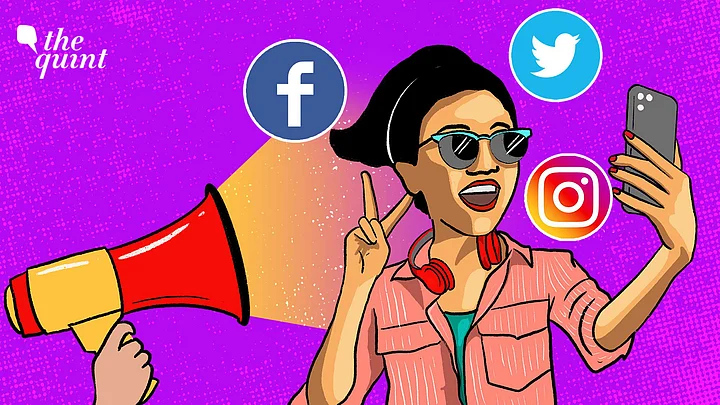The Union government has said that it will soon roll out guidelines for social media influencers to prevent false advertising and misleading promotions. The move is expected to impose stricter standards and transparency requirements on social media influencers if they promote products or brands.
“The (social media) guidelines will fall under the provisions of preventing misleading advertisements and fake advertisement rules of the Consumer Protection Act,” Business Standard reported, quoting a senior official.
In June 2022, the Central Consumer Protection Authority had also notified rules to prevent celebrities from promoting misleading advertisements and products.
Influencers found sharing misleading endorsements, fake reviews or products, to influence fans to buy or spend, can face prosecution under the new law, officials added.
What do the new guidelines say? Here's all you need to know.
What do the new rules say?
The new guidelines will make it compulsory for social media influencers to disclose if they're promoting a product or brand on a social media post or platform. Social media influencers will also be required to disclose any vested interests, monetary or otherwise, in the products/brands/services that they're promoting.
Further, influencers writing fake reviews or even endorsing products and brands without the adequate checks and balances will face strict action, Business Standard reported, quoting officials.
The law will also make social media influencers liable for violations – up to Rs 10 lakh for a first offence. This fine could extend to Rs 20 to 50 lakh for repeat offences. These guidelines will fall under the scope of the Consumer Protection Act, and will be treated accordingly.
When are the guidelines expected to be released?
The guidelines are expected be released in the next 7-10 days.
How will this law affect social media influencers?
According to Shweta Purandare, former secretary-general of the Advertising Standards Council of India (ASCI), the move could reportedly have far-reaching implications since the influencer market is still in its nascent stages in India.
“The guidelines have been framed after extensive consultation with all stakeholders that also include companies, brands and representatives from digital platforms where such influencers are found to be very active,” a participant at one of the meetings said.
This isn't the first law to govern influencer markets. The Central Consumer Protection Authority also notified the Guidelines for Prevention of Misleading Advertisements and Endorsements for Misleading Advertisements, 2022 on 9 June.
This provision, made under Section 18 of the Consumer Protection Act, also placed heavy fines on celebrity influencers and endorsers for failing to disclose vested interests in a promotion, including disclosing that a certain post or share is a promotion.
Who is defined as an "influencer" or "social media influencer"?
The Advertising Standards Council of India had released overarching guidelines for influencers in 2021, but had kept the definition of what an influencer is, broad.
According to the ASCI, an influencer is "someone who has access to an audience and the power to affect their audiences’ purchasing decisions or opinions about a product, service, brand or experience, because of the influencer’s authority, knowledge, position, or relationship with their audience."
This extends to "virtual influencers" as well. It defines virtual influencers as "fictional computer generated ‘people’ or avatars who have the realistic characteristics, features and personalities of humans, and behave in a similar manner as influencers."
These definitions remain deliberately vague compared to influencer laws in other countries. For example, the UK's advertising standards authority has said that anyone with a follower count over 30,000 on social media is classified as an influencer.
Why do we need a law to govern influencers?
As of 2022, the social media influencer market in India is estimated to be worth Rs 1,500 crore. This is only set to grow bigger in the coming years, on the tail of increasing social media reach.
Speaking to Business Standard, Shweta Purandare adds, "A social media personality with even a small follower base can make viral content that could reach and influence a larger audience. The nature of social media also makes it a difficult market to closely track and regulate. So we need a strong framework to prevent false or misleading advertisements."
For example, the US implemented strict laws to fine Instagram influencers for not disclosing that a social media post was a promotion, following the Fyre Festival incident in 2019, where thousands of people were misled and defrauded for millions of dollars, based on Instagram posts by Instagram influencers and models.
The new guidelines seek to prevent similar situations in India.
(At The Quint, we question everything. Play an active role in shaping our journalism by becoming a member today.)
